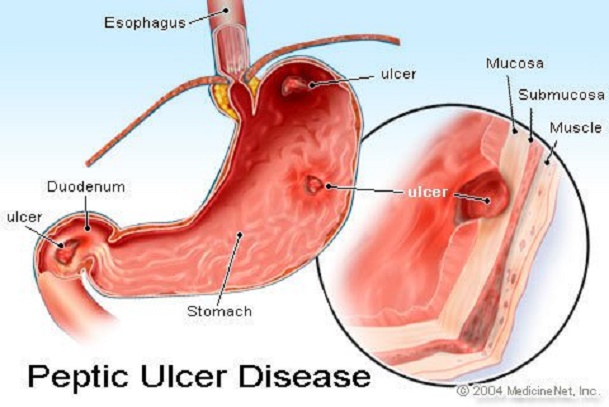 Wash your hands regularly and wear a face mask.
Learn more
Wash your hands regularly and wear a face mask.
Learn more

Stomach cancer and Stomach ulcer are two distinct conditions that affect the same organ, the stomach. While some of the symptoms associated with these conditions are similar, there are a few that are quite different. But before we discuss these similarities and differences, let’s take a quick look at what Stomach Ulcer and Stomach cancer are.
What is Stomach Cancer?
Stomach cancer is a unique type of cancer that originates from the stomach. The most common type of stomach cancer is adenocarcinoma, which develops from the innermost lining of the stomach (the mucosa). The cancerous growth spreads through the lining of the stomach wall and from there it moves to the organs closest to it (Spleen and pancreas) and the lymph nodes. It is equally capable of spreading through the entire lymph system and getting as far as organs like the liver, bones, and lungs.
What is Peptic Ulcer or Stomach Ulcer?
This is usually an open sore in the upper of the digestive tract. Stomach ulcer is mostly of two types; gastric ulcer, which is formed in the lining of the stomach, and duodenal ulcer, which is formed in the upper part of the intestine.
STOMACH CANCER VS STOMACH ULCER, SIGNS AND SYMPTOMS
Stomach Cancer Signs and Symptoms
Early symptoms of stomach cancer are not definitive and are most times vague. However, you need to seek medical help if you notice that you exhibit any of the symptoms enumerated below.
The symptoms below, however, may indicate advanced cancer.
Gastric and Duodenal Ulcer Signs and Symptoms
Stomach ulcers do not usually cause symptoms. Sudden bleeding or bad upper abdominal pain is the first indication of stomach ulcer. The most common symptom of gastric ulcer is abdominal pain. Others include stomach ulcer pain:
Nausea, Vomiting, loss of appetite and weight are also subtle signs of stomach ulcer. Severe ulcer on the other hand reveals itself through bleeding in the duodenum or stomach. The bleeding may be fast or slow. Fast bleeding may manifest itself in one of two ways:
Slow bleeding is difficult to detect and may not have dramatic symptoms like those associated with fast bleeding.
CAUSES OF STOMACH CANCER VS STOMACH ULCER
Stomach Cancer Causes
Stomach cancer is currently the second largest cause of cancer related deaths worldwide. Possible causes of stomach cancer include:
Stomach Ulcer Causes
In the past, it was believed that stomach ulcer was caused by poor eating habits, cigarette smoking and accumulated stress. Now, it is understood that people with ulcers tend to have an imbalance between acid and pepsin coupled with the inability of the digestive tract to deal with harsh substances in the stomach like hydrochloric acid. This acid together with pepsin help in the digestion of the food we eat. Partial digestion of food occurs in the stomach before being transferred to the duodenum for further digestion. Peptic ulcers occur when hydrochloric acid alongside enzyme pepsin overcome the defense mechanism of the gastrointestinal tract and goes further to damage the wall of mucosa.
Results of the researches conducted in the 1980s show that stomach ulcer can be caused by bacterial infection (Helicobacter pylori, H pylori). This, however, does not mean that everyone who has ulcer is infected with H pylori. Regular intake of aspirin and other anti-inflammatory drugs can also cause peptic ulcers. The following factors and substances can equally cause stomach cancer.
If you take these medications such aspirin and other anti-inflammatory drugs regularly, it is important to discuss other alternatives with your health care provider. It is even more pressing if heart burn or stomach upset is a side effect of using such drugs.
Stomach Ulcer Spread by Feces
H pylori bacteria which have been found to be one of the causes of peptic ulcer can spread through the stool of an infected person. In settlements and environments where hygiene is extremely poor, this stool is capable of contaminating food and water as well. When these are ingested, the H pylori bacteria find its way into the digestive tract of the individual. This is known as fecal-oral transmission. The bacteria are located in the stomach where they can easily destroy its lining and that of the duodenum. People who are newly infected with the bacteria begin to exhibit symptoms few weeks after being infected.
WHAT DO YOU DO IF YOU HAVE SYMPTOMS OF STOMACH CANCER?
Sources: Medicinenet and other sources